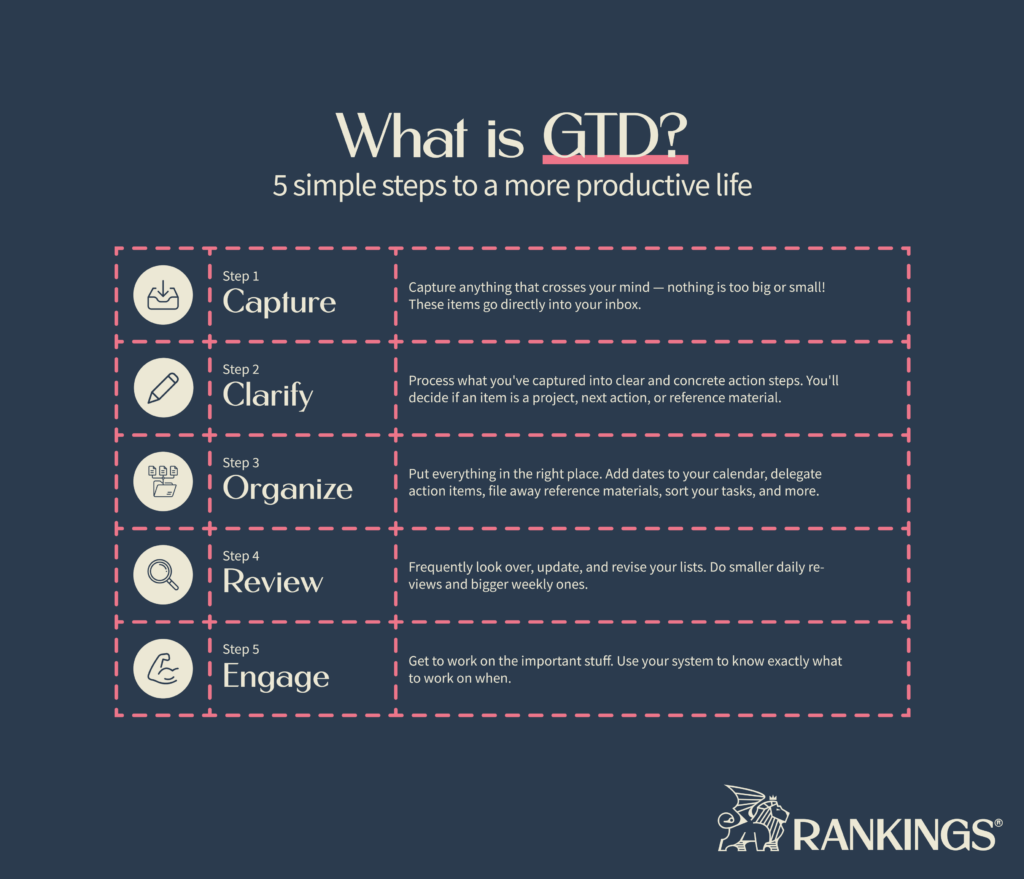In a law firm, your time matters just as much as any business owner’s. But attorneys face the added pressure of reducing other tasks in favor of billable hours.
It’s all too easy for lawyers to become overwhelmed and unproductive. These tips will help you stay on track.
1. Automate Routine Tasks
Automating routine work saves a lot of time and effort that’s otherwise wasted. You might not even realize the impact of repetitive tasks on time until you track them for an entire day or a week.
Routine tasks stack up quickly. Each one might only take a couple of minutes or half an hour. When you track it, though, you’ll find they add up over the course of a busy work week or month in your law firm.
There are many different types of tasks that you could automate, including:
- Document creation through templates
- Canned emails and responses from tools like TextExpander
- Scheduling appointments
- Storing documents
By setting up systems and tools for automation, you’ll be able to refocus your energy on representing clients.
2. Invest in Tools that Improve Productivity
Did you know that the average lawyer spends at least six hours a week on problems with document management? Finding the right software could give you that time back again. It could also reduce the possibility of errors, which could save even more time.
It doesn’t end with document management, either. There are several tech tools for lawyers that can help you become more productive. Some tools can help you at an individual level, and others can assist your entire team.
Some of the most common examples for law firms include:
- Practice management software
- Case management software
- Client intake software
- Scheduling software
- Document management
Deciding which tools will work for your law firm can save you a lot of time in thelong run. This is especially true when these tools integrate with one another.
3. Delegate Tasks to Your Team
There’s a good chance you’re taking on tasks you don’t need to do yourself.
It’s hard to recognize the tasks that only you can do or should be doing. But passing the reins frees you up to handle the task where you can make the biggest impact.
Instead of handling administrative, accounting, and even marketing tasks, you can focus on what you do best.
If you have a team, delegate tasks to them based on their skills and expertise. This will help you focus on more complex legal work and save time. To accomplish this, you must invest in and trust your law firm team members.
Proper law firm management includes things like getting the right people in the right seats, creating standard operating procedures, and continually investing in professional development for staff.
4. Break Down Big Tasks into Manageable Ones

Adding entire projects onto your to-do list is overwhelming. Worse, it decreases the possibility that you’ll actually get the work done.
You can make your workload more manageable by breaking things down to the next actions you need to take to move a project along.
This is a major part of the popular Getting Things Done method.
David Allen’s Getting Things Done method follows a simple 5-step process:
- Capturing everything you need to complete and storing it in one place
- Clarifying all the tasks you wrote down into steps
- Organizing those tasks by assigning them to your calendar or team
- Reviewing your task lists daily and, in more depth, weekly
- Engaging with your tasks to get them done
Make sure the “next action” for any task on your list is doable and has a time estimate. That makes it easier to block and tackle within a space on your calendar.
5. Schedule Time for Deep Work
It’s a fact that some tasks simply require deeper focus than others. Compare preparing for trial to responding to routine emails.
It’s also a common problem for the routine to crowd out the deep work at the cost of productivity.
You can fix this by setting aside specific time for intensive, distraction-free work. By doing so, you’ll have a better way to stay on track with the tasks that need your undivided attention.
During these deep work sessions, eliminate distractions and interruptions. This will help you achieve the focus needed to perform at your highest level.
To learn more about implementing deep work throughout your law firm, look at Cal Newport’s Deep Work, one of our favorite books for lawyers.
6. Start Time Blocking
Ever heard the phrase, “work expands to fill the time allotted to its completion?”
That’s the basis of Parkinson’s Law, and it’s at the root of many productivity problems. When you give yourself no time limit to complete a task, that task may never see completion.
Being protective of your schedule can help you safeguard your deep work sessions. It can also help you find efficient times for more mundane work like answering emails.
Start by creating deep work focus blocks. Be intentional about placing time on your calendar for when these will happen. Then create time blocks for the shallow work.
Making time estimates for the projects you intend to work on will help with this. You can also use productivity strategies like the Pomodoro Technique.
When you assign specific time blocks to the tasks on your plate, hold yourself to them. If something really only takes 90 minutes, it’s better to block that 90 minutes on your calendar, avoid disruptions, and knock it out.
7. Create a System for Email Management

One of the greatest time sucks in any law firm is sending and answering emails. With no constraints on it, email can be a significant time waster and a huge distraction in your law firm.
The more tactical you are about addressing email concerns, the better.
Here are some top tips for maximizing your productivity around email:
- Check your email only a few times a day
- Use filters to prioritize messages
- Use tools like TextExpander to build templated answers to common messages
- Practice inbox zero so you leave the office with a clear head
The average person spends 172 minutes a day checking email, which is a big chunk of a lawyer’s workday. If you’re worried about how much time you spend in your inbox, consider investing in timekeeping software for lawyers to keep you honest.
8. Outsource Non-Legal Work
Just as we mentioned with delegation, there are some tasks that only you can do and some that are a distraction.
Trying to DIY things like your accounting, IT, and law firm marketing takes focus away from your strengths. Instead of focusing on closing cases, you end up trying to figure out how a server works.
To keep your focus on the legal work, you can trust experts with important but specialized tasks. This frees up your focus while still giving you the peace of mind that things are on track.
Finding the right partners to help with things like marketing and IT sets you up for better success across the board. It can also save a lot of time. Even better, You’ll still get all the benefits of seeing those tasks get done at a high level of quality.
Help More Clients & Get More Done
Focusing on productivity is an ongoing goal. It’s one you should come back to time and again to make sure you’re implementing best practices across your entire law firm. Implementing productivity tools and systems can help you grow your law firm.
One of the best ways to get more of your time back is to hand off marketing tasks to a team of talented experts.
Get your law firm’s name out there with a solid attorney marketing plan and the help of Rankings.io. Contact us today to gain a competitive edge for your legal practice by outsourcing what you can and optimizing the rest.
The post 8 Tips to Improve Your Productivity as a Lawyer appeared first on Rankings.




